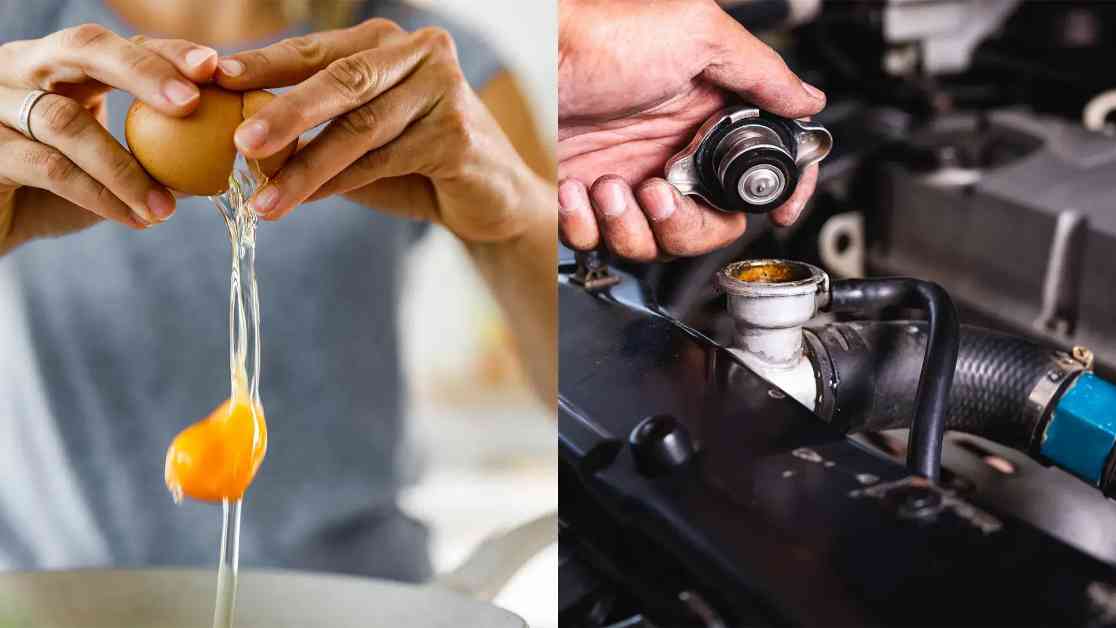A leaking radiator can cause serious damage to your vehicle’s engine if not addressed promptly. One old hack that has been popularized by the TV show MacGyver is cracking an egg into the radiator to seal the leak temporarily. This method works best for small holes in the radiator, not for larger ones or split radiator hoses.
Mythbusters tested this egg hack and found that it can be effective in certain circumstances. The idea behind it is that when the egg gets cooked, it can seep into any cracks in the radiator and create a rubbery seal, blocking the leak.
If you don’t have access to an egg, there are off-the-shelf products available at petrol stations that work on the same principle. These products contain resin and Kevlar that can be poured into the radiator to circulate with the coolant and seal the hole temporarily. However, it is essential to flush the cooling system once you reach your destination to prevent any issues caused by the egg dislodging and moving into other parts of the system.
While using an egg or stop-leak products may provide a temporary fix, it is crucial to remember that it can also potentially damage your engine. The solid material created by the egg or the sealant can clog water pumps, hoses, heater cores, and other parts of the cooling system, leading to overheating issues. This risk is higher for newer cars with more complex cooling systems that operate at higher temperatures and pressures.
Ultimately, using an egg or stop-leak product in your radiator should be considered a last resort and a temporary solution. It is important to monitor your temperature gauge closely after using this method and seek professional help as soon as possible. Remember, prevention is always better than a costly repair in the long run.










